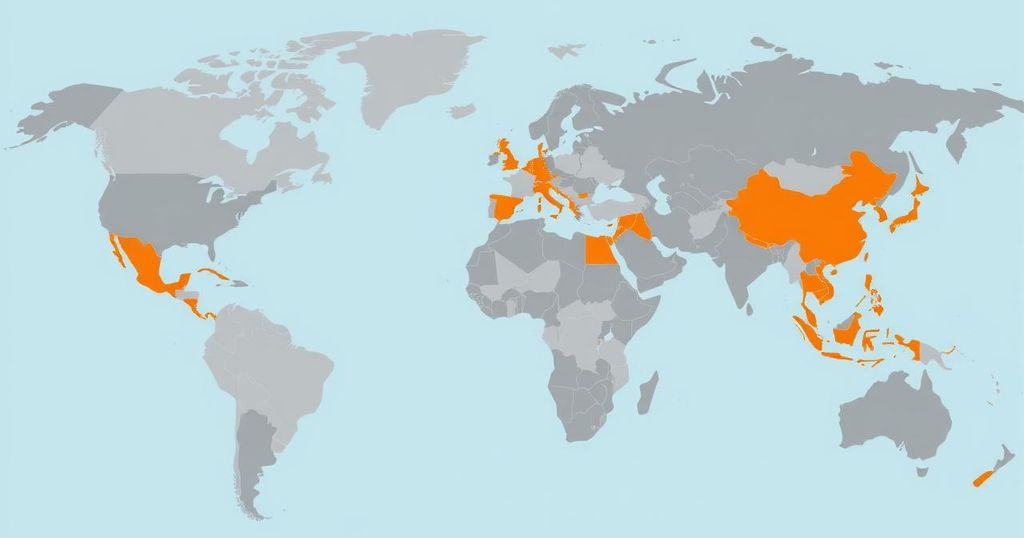The Trump administration is preparing to impose new U.S. entry restrictions on Afghanistan, Pakistan, Iran, Libya, Somalia, Sudan, Syria, Yemen, Chad, North Korea, and Venezuela. Following a recent Executive Order, federal agencies are assessing security vetting procedures. Civil rights groups criticize the proposal, asserting it could harm vulnerable populations, notably Afghan refugees. An announcement detailing the new restrictions is expected soon.
The Trump administration is reportedly planning to impose new U.S. entry restrictions on several nations, including Afghanistan, Pakistan, Iran, Libya, Somalia, Sudan, Syria, Yemen, Chad, North Korea, and Venezuela. This initiative follows an Executive Order issued on January 20, which instructs federal agencies to evaluate countries lacking sufficient security screening and vetting processes. The objective is to enhance entry requirements, with officials contemplating partial or complete suspensions of admissions from these nations. An official announcement regarding the affected countries is anticipated soon.
During President Trump’s first term, a series of travel bans were enacted starting in 2017. The initial ban specifically targeted countries with predominantly Muslim populations, which drew substantial backlash from critics who labeled it a “Muslim Ban.” Despite facing numerous legal challenges, the U.S. Supreme Court confirmed the third version of the ban in 2018, affirming its alignment with the President’s national security authority.
Although the definitive list of restricted countries remains unconfirmed, Afghanistan and Pakistan are under consideration for inclusion. Advocacy organizations such as the International Refugee Admissions Project (IRAP) have cautioned that these restrictions could severely impact Afghan refugees, particularly Special Immigrant Visa (SIV) holders escaping from Taliban threats.
Reports indicate that Pakistan is being evaluated due to security issues and perceived inadequacies in its vetting methods. Should Pakistan be added to the ban, thousands of nationals seeking U.S. visas may be adversely affected.
Opposition to the prospective travel ban has emerged rapidly. Civil rights entities, including the American Civil Liberties Union (ACLU), have denounced the proposal, asserting that the plan would foster discrimination. Critics contend that the State Department and DHS already implement highly stringent vetting protocols, rendering further restrictions redundant.
Under the current Executive Order, the State Department and DHS are required to finalize their list of nations facing travel restrictions within 60 days. As the deadline nears, the public anticipates an official pronouncement concerning the new restrictions.
In summary, the Trump administration is poised to enact new entry restrictions for several nations due to security concerns related to screening procedures. Key countries under review include Afghanistan and Pakistan, with advocacy groups predicting negative consequences for affected individuals, particularly refugees. The potential policy has sparked opposition from civil rights organizations questioning its necessity.
Original Source: www.travelandtourworld.com




